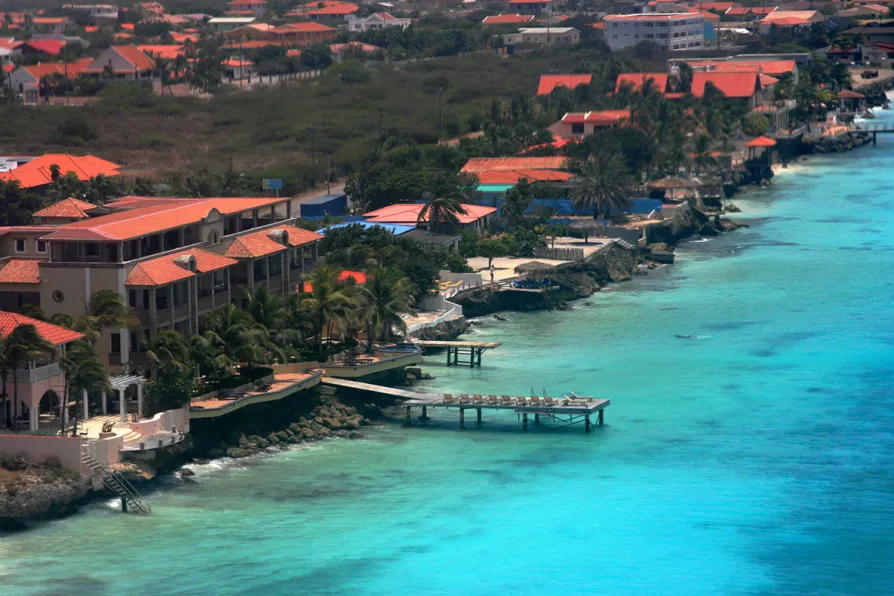
 Bonaire Island, Netherlands Antilles, 2009 [Pic: V.Vergne / Creative Commons]
Bonaire Island, Netherlands Antilles, 2009 [Pic: V.Vergne / Creative Commons]
A FARMER, a prison guard, and a teacher were among residents of the Dutch Caribbean island of Bonaire to speak in a Hague courtroom on Tuesday to accuse the Netherlands of not doing enough to protect them from the effects of climate change.
Greenpeace is taking the Dutch government to court over its lack of action to protect the Caribbean island of Bonaire from rising sea levels.
In January last year, eight people from the former Dutch colony joined forces with Greenpeace to sue the government for failing to protect them against climate change.
Bonaire is part of the Netherlands and has the status of an independent local authority area, but Greenpeace argues that government measures to tackle climate change are focused on the European part of the country.
The case follows a series of international landmark rulings that found governments have broad obligations to protect their citizens from increasing temperatures and rising sea levels.
“Whether we live on Ameland, Bonaire or in Valkenburg, everyone wants our government to protect our future in the climate crisis,” Greenpeace said in a statement ahead of the first day of hearings. “That means protecting our health, homes, jobs and the natural environment.”
“The government still treats people on Bonaire as if they matter less,” Greenpeace said.
Farmer Onnie Emerenciana flew 4,000 miles to tell the judges that for those who can’t afford air-conditioning, summers have turned their places into “prisons of concrete” and demanded the Dutch government do more to help the former Dutch colony.
Lawyers for the government say the country is making strides to combat climate change, citing greenhouse gas reductions and mitigation efforts. The state argues, addressing the problem is a matter for the government, not courts.
The case is being heard at the District Court of The Hague, where the landmark Urgenda proceedings began more than a decade ago, and in 2019, the Dutch Supreme Court ruled in favour of climate activists and ordered the government to cut greenhouse gas emissions.
The Urgenda decision featured prominently in recent climate change decisions from the European Court of Human Rights and the United Nations’ highest court, the International Court of Justice.
Both courts found that failing to combat climate change violated international law.
In the decade up to 2023, sea levels rose by a global average of around 1.7 inches, with parts of the Pacific rising higher still.
The world has also warmed 1.3°C since preindustrial times because of the burning of fossil fuels.










